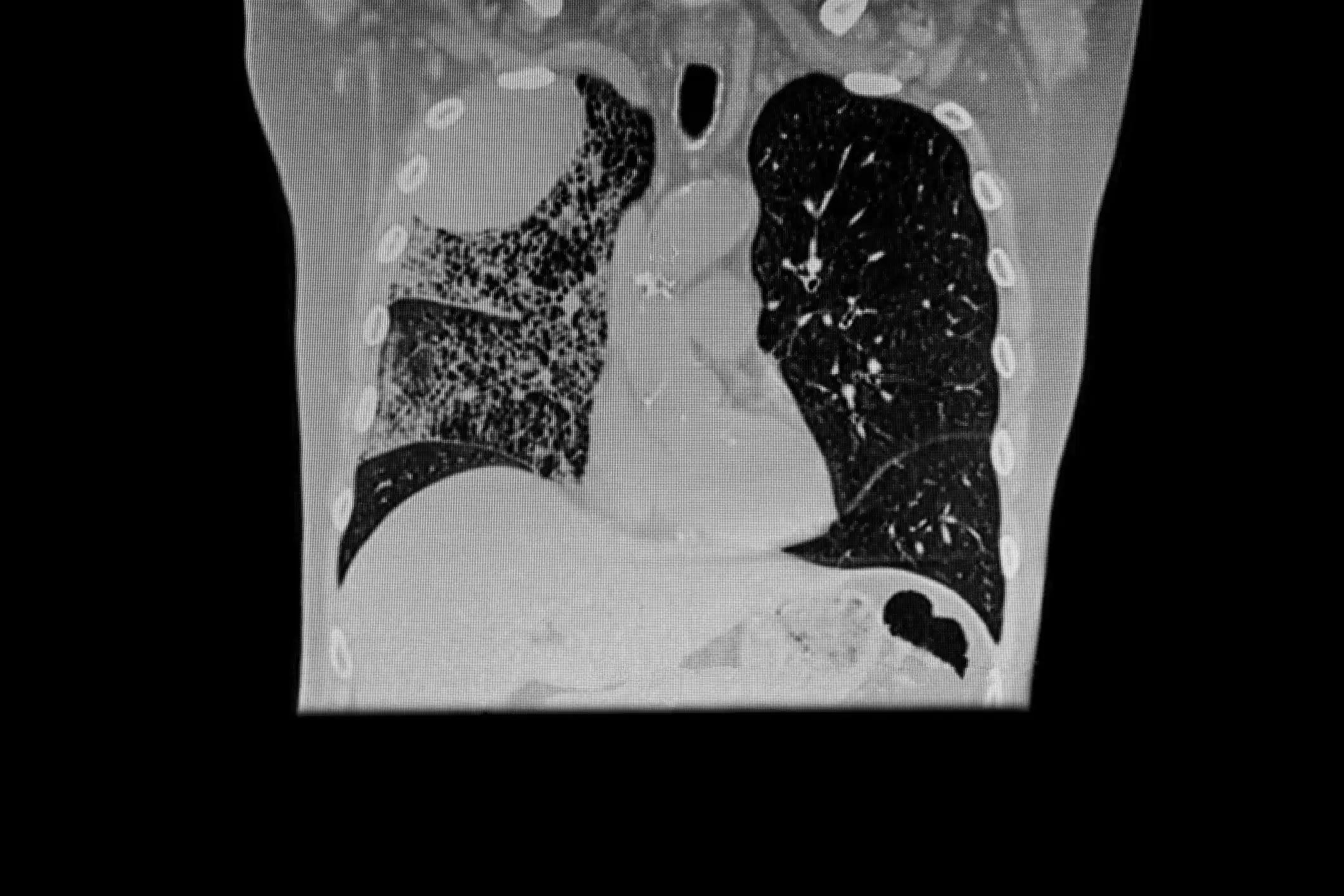KEY TAKEAWAYS
- ADRIATIC (phase III study, NCT04380636) evaluates durvalumab with or without tremelimumab for consolidation therapy in LS-SCLC.
- The study aimed to examine the effectiveness of durvalumab with or without tremelimumab in LS-SCLC.
- ADRIATIC is a randomized, double-blind, placebo-controlled, multicenter, global study. Patients with LS-SCLC who have not experienced disease progression following cCRT were eligible to participate in ADRIATIC.
- The endpoints of this study are OS and PFS.
Asignificant unmet need exists for treating limited-stage (LS) small-cell lung cancer (SCLC). Platinum-based chemotherapy with concurrent radiotherapy (cCRT) with a curative objective, followed by prophylactic brain irradiation and observation, is the current standard of care. Nonetheless, relapse is common among patients. Patients with unresectable stage III non-small-cell lung cancer have seen improved efficacy outcomes following cCRT when treated with durvalumab (anti-programmed cell death ligand-1). Durvalumab has shown antitumor activity as monotherapy and in combination with tremelimumab (anticytotoxic T-lymphocyte-associated antigen-4) in pretreated patients with extensive-stage SCLC, and this combination has recently shown a substantial survival benefit in comparison to platinum-etoposide as first-line treatment of patients with extensive-stage SCLC.
Patients with LS-SCLC who have not experienced disease progression following cCRT were eligible to participate in ADRIATIC. It is a phase III, randomized, double-blind, placebo-controlled, multicenter, global study to examine the effectiveness of durvalumab, with or without tremelimumab, as consolidation therapy.
About 600 patients with confirmed LS-SCLC on histology or cytology, WHO/Eastern Cooperative Oncology Group performance status 0 or 1, and stable disease after 4 cycles of cCRT will be randomly assigned (1:1:1) to receive either treatment (durvalumab 1,500 mg plus placebo every 4 weeks [q4w] for 4 cycles, followed by durvalumab 1,500 mg q4w; durvalumab 1,500 mg plus tremelimumab 75 mg. Progression-free survival and overall survival are the key endpoints. The secondary objectives were progression-free survival, objective response rate, and safety and tolerability. The recruitment process started in September 2018.
Source: https://pubmed.ncbi.nlm.nih.gov/35618629/
Clinical trial: https://clinicaltrials.gov/ct2/show/NCT04380636
Jabbour, S. K., Cho, B. C., Bria, E., Kato, T., Bhosle, J., Gainor, J. F., Reguart, N., Wang, L., Morgensztern, D., Shentu, Y., Kim, S. J., Souza, F., & Reck, M. (2022). Rationale and Design of the Phase III KEYLYNK-012 Study of Pembrolizumab and Concurrent Chemoradiotherapy Followed by Pembrolizumab With or Without Olaparib for Stage III Non-Small-Cell Lung Cancer. Clinical Lung Cancer, 23(6), e342–e346. https://doi.org/10.1016/j.cllc.2022.04.003



